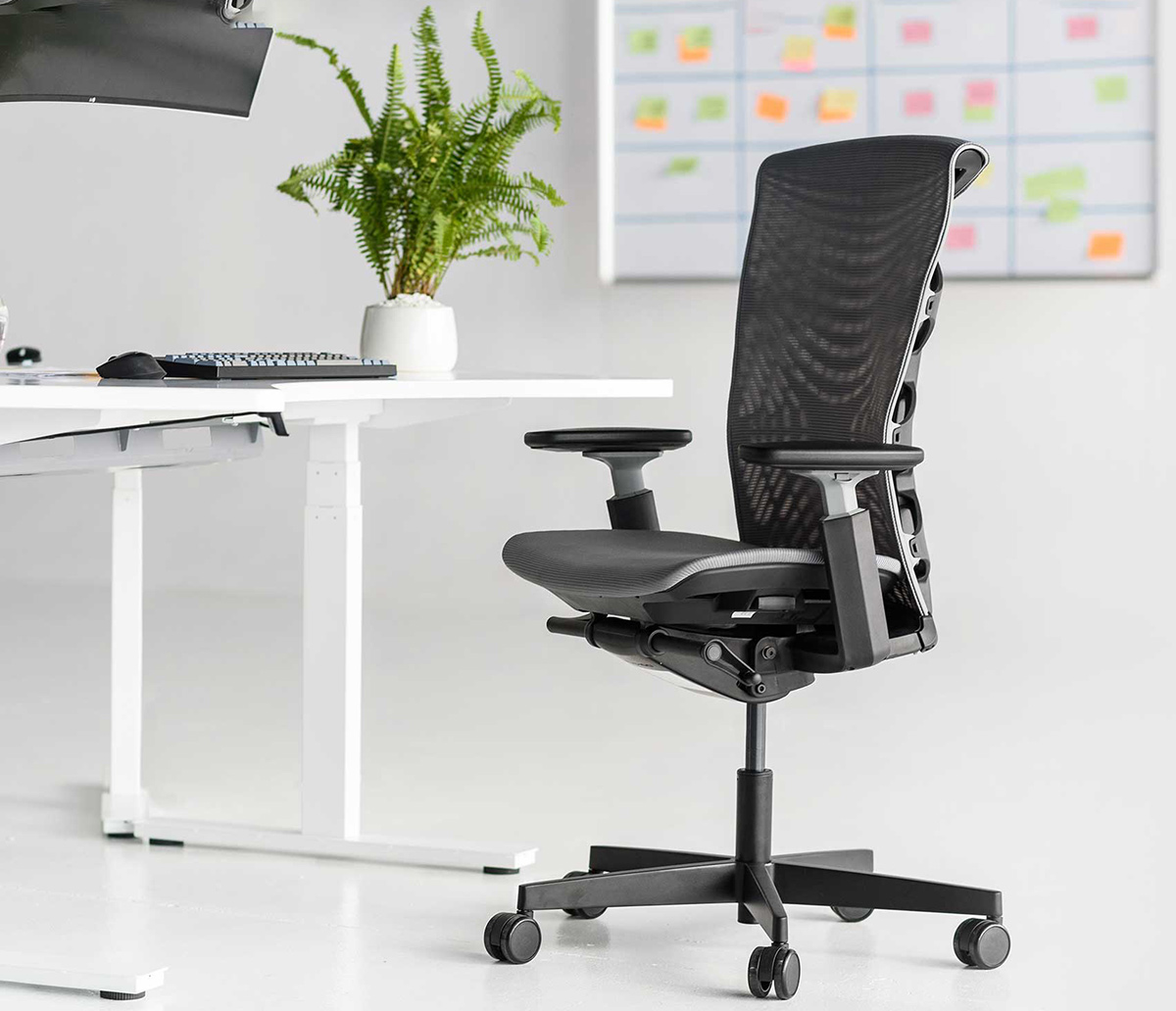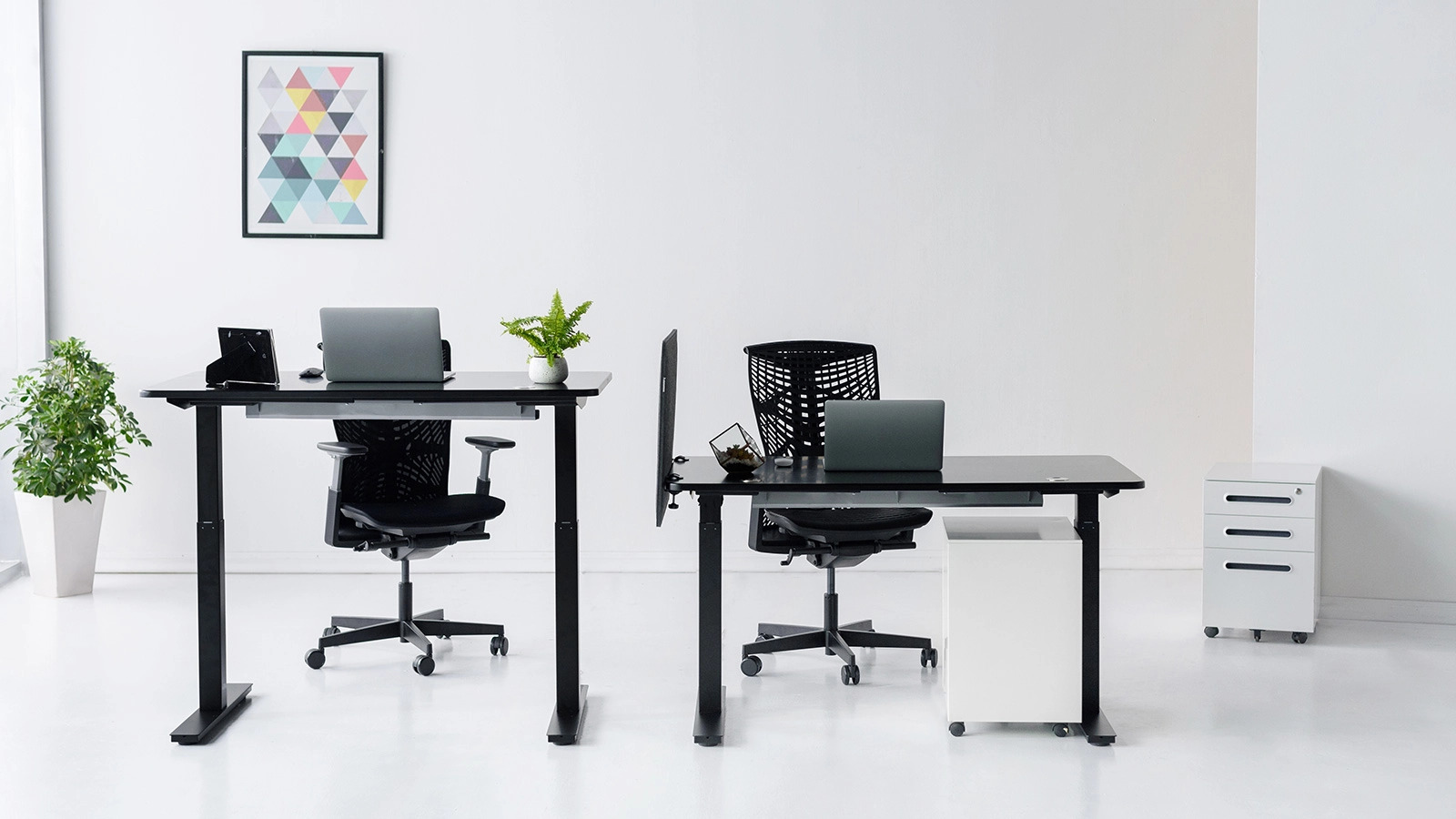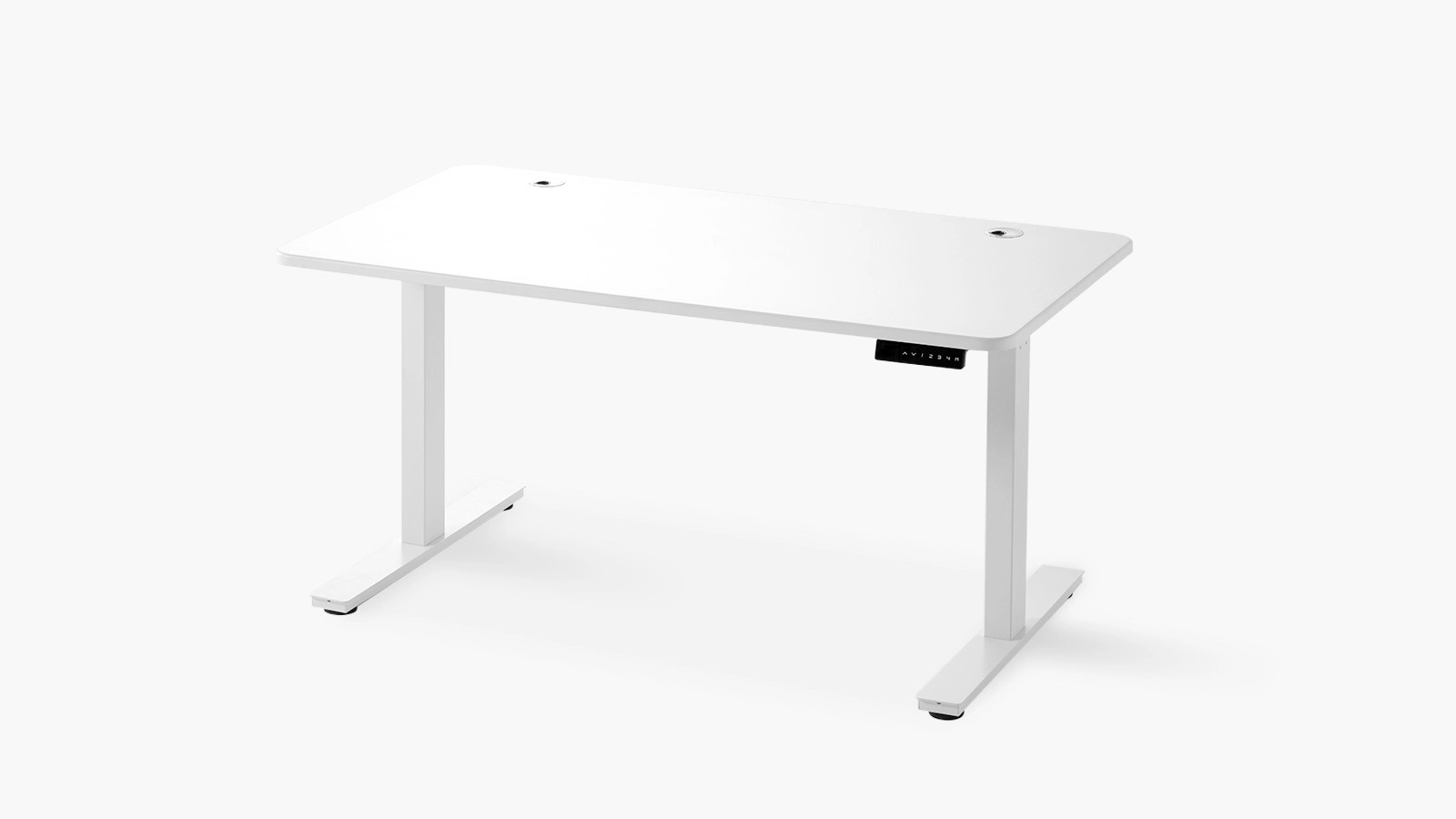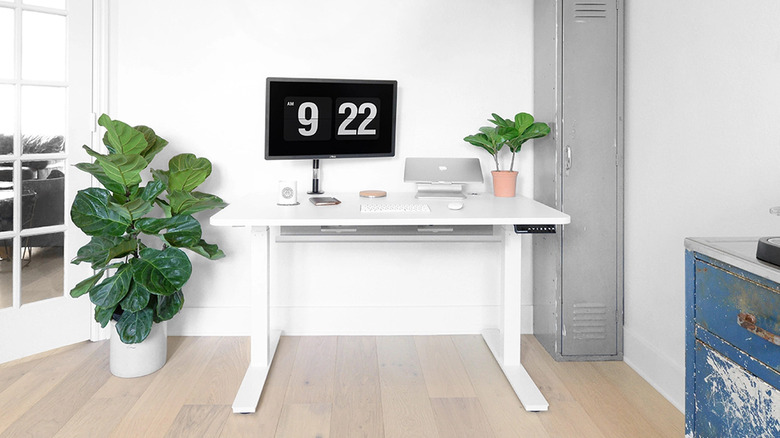Autonomous' Motorized SmartDesk 2 Was A Game-Changer For Me, And It Costs Less Than You Think
To be honest, I'm not exactly sure why I've been working the way I have for so long. I work most days from home and I obviously know the value of a comfortable, supportive chair and a good desk. Yet for the better part of the last decade, I've been working with a desk and office chair that would be better suited to the bottom of a landfill.
I literally bought my desk chair off the back of a truck about nine years ago. A friend told me about a nearby business that was shutting down and selling off "really comfortable, high-end desk chairs." Upon arriving, I quickly discovered that there was nothing even remotely comfortable or high-end about the chairs. I had already gone out of my way to check them out and they cost next to nothing, so I just bought one. As for my desk, well, I almost don't even want to admit the setup I was using. I had a decent desk that broke, so I used a small glass tabletop and a set of legs from Ikea as a temporary fix while I searched for a new desk to replace the broken one. That was almost five years ago.
Again, I really don't know why I've been so lazy about upgrading my home office. I'm not particularly cheap, especially when it comes to furniture around my home. I like to buy high-quality stuff that looks good and was built to last, and you'll find nice pieces in just about every room of my home. But not in my home office, which is where I spend more of my time at home than in any other room in my house.
I think it boils down to the fact that good desks and office chairs are typically very expensive, but there's really no way to know how well-suited they are over time. The first time I sat in a Herman Miller Aeron, I thought it was the best chair I had ever tried. After sitting on one for months in my office at BGR's New York headquarters, however, I discovered that I really don't like the Aeron at all. I know it's the industry standard, but it's just not very comfortable for me personally. With that in mind, do I really want to commit to any $1,000+ desk chair after sitting on it for a few minutes in a store? And so I just kept living with the crummy chair and crummy desk that I had.
Time marched on and I kept sitting on my awful chair at my awful desk until a few months ago when I broke a piece off one of the chair's arms. Now it could no longer be raised or lowered anymore, and I finally decided I had enough. It was time to upgrade my setup.
After doing tons of research, I was leaning toward the hideous but wonderfully comfortable and supportive Herman Miller Embody along with a nice desk I found at a local furniture store. Both were on the pricey side, but I figured they were worth the investment considering I spend as long as 12 hours a day in my home office. And if history had taught me anything, I would undoubtedly get my money's worth (and then some!) based on how long I would inevitably hold onto them.
Then, something interesting happened. The holidays were approaching so I decided to wait for Black Friday to see if I could save some cash, when I received an email from a company called Autonomous. I was unfamiliar with the brand at the time, but they asked if I was interested in testing out a new version of their automatic standing desk called the SmartDesk 2 and their latest office chair, the Kinn Chair. I was unsure at first, but after doing some reading about the company and its products, I decided to give them a shot.

Assembly of the Kinn Chair was very easy thanks to the fact that there are just a few parts that need to be put together. The SmartDesk 2 was a tiny bit trickier because the assembly instructions aren't crystal clear in some areas. It wasn't difficult by any means, but instructions are scarce and the illustrations don't always make it easy to tell which direction different pieces should face. I'm sure there are YouTube videos out there that will make it a breeze, but I'm reasonably handy so I was able to put it together on my own. From start to finish including a few pauses to ensure everything was positioned properly, the desk assembly probably took me about 20 minutes.
Beginning with the chair, I was a big fan from the moment I first sat down. I was a bit worried about comfort when I first read that the seat base is made of TPE springs as opposed to foam or gel, but it's far more comfortable than I thought. 62 individual TPE springs provide a good amount of resistance and distribute weight well, while the TPE above and optional polyester mesh provide a nice, even seating surface. The frameless back is also quite comfortable, though I do wish there was an option for adjustable lumbar support. If you sit directly on the seat or on a thin cushion of some kind, you'll be fine. If you sit on a very thick cushion though, the lumber support won't hit the right spot.
Other than the lumbar, everything else you could possibly want to adjust can be adjusted. The seat moves forward and back with ease and the hydraulic height adjustment makes it simple to find the perfect height. The armrests move up and down as well as side to side, allowing you to widen or narrow the seat to your liking. The adjustable height of the armrests can obviously be locked in place, but it should be noted that the sideways motion does not lock. As a result, you might find that you accidentally slide an armrest to the side from time to time. I just leave mine as wide as they go since I don't use them while I work.
The reclining back of the Kinn chair can be locked and unlocked with ease, and you can also adjust the tension of the reclining feature with a crank, thereby changing the amount of pressure you need to apply in order to lean back. For people who recline often, it's great to be able to completely eliminate any unintended reclining.
I've been sitting on the Kinn Chair for about a month and a half now, so I can safely say it's the best office chair I've used. I prefer it to the Aeron, which is pretty crazy when you consider that it costs less than half as much. The Kinn Chair retails for $569 in six different color and material combinations, but a limited-time sale at the time of this writing cuts $150 from that price, making it just $419 with free shipping via FedEx. Autonomous also offers a 30-day trial, so you can return it for a full refund if you don't like it.

I'm clearly a big fan of the Kinn Chair, but the SmartDesk 2 is impressed me even more. On top of that, it's probably helping to save my life if all the recent studies I've read are accurate.
Every few years, we learn that something we do all the time is killing us. For a while, it was eating red meat. Then it was high-fructose corn syrup. What's killing us now? Sitting. Numerous recent studies have found that sitting for long periods of time can have a serious negative impact on your health, and that's why the popularity of standing desks has been on the rise.
I've always been intrigued by the idea of a standing desk since I generally work between 11 and 12 hours per day. I even bought a desktop model at one point that lets you raise and lower your monitor and keyboard on top of any desk you already own. I found it to be far too clunky though, so I stopped using it after just a few days. Once I realized that wasn't the right solution for me, I began looking into a true standing desk instead.
When it comes to convertible models that allow you to sit or stand, I ran into a problem: manual standing desks are too much of a hassle to use, and high-quality automatic standing desks are too expensive. That's what makes the Autonomous SmartDesk 2 so great — you get all the convenience and the build quality of a premium motorized standing desk for the price of a manual model.
At just $479 — or $379 at the time of this writing, thanks to a sale — the SmartDesk 2 offers unrivaled value. It's solid, it's sturdy, it's well designed, and it couldn't be easier to raise and lower. A small seven-button control module is positioned under the desk on the right-hand side, so it's accessible but out of the way.
The first two buttons are arrows that raise and lower the desk while you hold them down, and the next four buttons store preset heights to memory. The last button is used to program each memory button. Having four available stored positions is great, but I only use two. When I press the "1" button, the desk lowers itself smoothly to my preferred sitting height. When I press the "2" button, the desk raises itself to my preferred standing height. Adjustments are quick and quiet, and the desk stops at the exact proper height each and every time. Trust me, I measured.

A metal passthrough near each of the back corners helps keep cords and cables organized, but I definitely recommend also buying the optional cable tray. It only costs $19 and it makes everything so much cleaner. I put my surge protector right on the cable tray and everything on my desk is plugged into that, as is the SmartDesk itself. This way, only a single cord from my surge protector needs to be run from the desk to the wall.
In the end, it turns out that my laziness and procrastination ended up paying off. I'm sure I would have liked the Embody chair and the desk I was eying before Autonomous reached out, but the chair is wildly overpriced and I wouldn't have had the option to work standing up. Autonomous' motorized SmartDesk 2 and its supportive yet comfortable Kinn Chair offer high-end quality at mid-range prices, and I recommend either or both to anyone looking for a fantastic upgrade.
